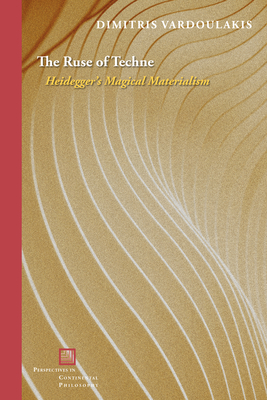The Ruse of Techne: Heidegger's Magical Materialism

The Ruse of Techne: Heidegger's Magical Materialism
The Ruse of Techne offers a reappraisal of Heidegger's entire work by focusing on the forms of activity he regards as separate from instrumentality. Non-instrumental activities like authenticity, poetry, and thinking-in short, the ineffectual-are critical for Heidegger as they offer the only path to the truth of being throughout his work. By unearthing the source of the conception of non-instrumental action in Heidegger's reading of Aristotle, Vardoulakis elaborates how it forms part of Heidegger's response to an old problem, namely, how to account for difference after positing a single and unified being that is not amenable to change. He further demonstrates that an action without ends and effects leads to an ethics and politics rife with difficulties and contradictions that only become starker when compared to other responses to the same problem that we find in the philosophical tradition and which rely on instrumentalit
PRP: 343.58 Lei
Acesta este Pretul Recomandat de Producator. Pretul de vanzare al produsului este afisat mai jos.
309.22Lei
309.22Lei
343.58 LeiIndisponibil
Descrierea produsului
The Ruse of Techne offers a reappraisal of Heidegger's entire work by focusing on the forms of activity he regards as separate from instrumentality. Non-instrumental activities like authenticity, poetry, and thinking-in short, the ineffectual-are critical for Heidegger as they offer the only path to the truth of being throughout his work. By unearthing the source of the conception of non-instrumental action in Heidegger's reading of Aristotle, Vardoulakis elaborates how it forms part of Heidegger's response to an old problem, namely, how to account for difference after positing a single and unified being that is not amenable to change. He further demonstrates that an action without ends and effects leads to an ethics and politics rife with difficulties and contradictions that only become starker when compared to other responses to the same problem that we find in the philosophical tradition and which rely on instrumentalit
Detaliile produsului









